(Geneva, November 19, 2010) – Recently obtained documents show that Libya’s security chief blocked an investigation into the death in detention in 2006 of a man being held under questionable circumstances, the human rights groups Alkarama, TRIAL (Track Impunity Always), and Human Rights Watch said today.
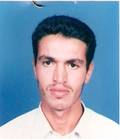 The organizations recently obtained a prosecutor’s report into the death of Ismail Al Khazmi, a 30-year-old engineer, showing that the public security secretary, or minister, at the time, Gen. Saleh Ragab, refused to allow the prosecution to open an investigation into the role of public security agents in the death. Al Khazmi’s case highlights the lack of accountability for Internal Security Officers, the three groups said.
The organizations recently obtained a prosecutor’s report into the death of Ismail Al Khazmi, a 30-year-old engineer, showing that the public security secretary, or minister, at the time, Gen. Saleh Ragab, refused to allow the prosecution to open an investigation into the role of public security agents in the death. Al Khazmi’s case highlights the lack of accountability for Internal Security Officers, the three groups said.
“General Ragab’s refusal to allow this investigation is only the latest example of the Interior Ministry’s interference in judicial investigations into security misdeeds,” said Sarah Leah Whitson, Middle East and North Africa director at Human Rights Watch. “The impunity for Libyan security services is probably the single greatest cause of disrespect for the rule of law in Libya.”
Sources in Libya who were close to Al Khazmi and who said they had direct, personal information about the circumstances surrounding his arrest told the three organizations that on June 17, 2006, the Libyan Internal Security Agency, a division of the General People’s Committee for Public Security, or Interior Ministry, arrested Al Khazmi, a petrochemical engineer, at his workplace.
The sources said officers did not show a warrant or give reasons for the arrest and that the Al Khazmi’s whereabouts were not revealed for 12 days. They said that despite numerous attempts during this time, his family was unable to get any information about his fate or place of imprisonment.
Alkarama, TRIAL, and Human Rights Watch obtained a copy of a report dated March 26, 2009, from Chief State Security Prosecutor Mostafa al-Mabrook Salama to Justice Secretary Mostafa Abdeljalil.
The report states that in April 2007, the prosecutor’s office summoned Al Khazmi’s family to receive his body for burial, and gave them a medical report dated November 15, 2006, which said he had died of natural causes from a heart attack. It says that Al Khazmi’s father refused to receive the body, insisting to the prosecutor that his son did not have a heart condition. The report said that Al Khazmi’s father filed a formal request with the prosecution on May 3 for a second forensic medical investigation.
The organizations have also obtained a copy of the report of the second autopsy, performed by a committee of three forensic medical doctors on September 11, 2007, and delivered to the prosecution on September 17, which concluded:
The death of Ismail Ibrahim Abu Bakr was injury induced, resulting from his exposure to the injuries described above in numbers 3 to 8, which were caused by blows with a hard, blunt object of some sort. These resulted in bruising and contusions all over the body, accompanied by subcutaneous hemorrhage and tearing of the muscles next to the site of injury. This caused pathological changes in the kidneys and a deficiency of fluids in the body. As a result, blood and respiratory circulation ceased.
The prosecutors had initiated an investigation into Al Khazmi’s case and sought the required permission from the public security secretary to summon three public security officers for questioning. In an April 2007 letter to the public prosecutor, General Ragab, the public security secretary, refused the request. As a result, prosecutors were unable to pursue the investigation.
Justice Secretary Abdeljalil told Human Rights Watch in April 2009 that as a matter of procedure the judiciary has no power to order an investigation of the Public Security Agency because its agents are immune from prosecution unless the secretary waives their immunity, but that he consistently refuses to do so. Human Rights Watch raised with Secretary Abdeljalil both Al Khazmi’s case and the cases of prisoners detained by Public Security in Abu Salim prison despite court orders for their release. He told Human Rights Watch that, “these prisons are affiliated to Internal Security and the Ministry of Justice has no jurisdiction over them.”
“Al Khazmi’s case highlights the fact that security agents are still above the law in Libya,” said Rachid Mesli, legal director of Alkarama. “The government must end security force impunity by allowing the Secretary of Justice and the prosecutors to do their job.”
Under the International Covenant on Civil and Political Rights, Libya has a duty to respect and ensure the rights to life, freedom from torture or ill-treatment, and liberty and security of the person. Under article 2(3), it has a further duty to provide an effective remedy, and to investigate promptly, all violations of these rights. The UN Human Rights Committee’s General Comment 31 says that the failure of a state party to investigate allegations of human rights violations can itself give rise to a separate breach of the Covenant.
In addition, the UN Principles on the Effective Prevention and Investigation of Extra-legal, Arbitrary and Summary Executions state that, “There shall be thorough, prompt and impartial investigation of all suspected cases of extra-legal, arbitrary and summary executions, including cases where complaints by relatives or other reliable reports suggest unnatural death in the above circumstances.”
In Libya’s Universal Periodic Review at the Human Rights Council in Geneva on November 9, Libya accepted the recommendation to “take the necessary steps to ensure that security forces are subject to legal oversight.” As a member of the Human Rights Council since June, Libya has additional obligations under General Assembly Resolution 60/251 to “uphold the highest standards in the promotion and protection of human rights and to fully cooperate with the Council.”
On November 6, 2008, Alkarama and TRIAL jointly submitted an individual communication to the United Nations Human Rights Committee regarding Al Khazmi. His case is currently under review. On November 19, 2010, Alkarama and TRIAL submitted the 2009 prosecutor’s report and the second autopsy report to the UN Special Rapporteurs on Torture, Extrajudicial, Summary or Arbitrary Executions, and on the Independence of Judges and Lawyers.
“This is a rare case where the evidence shows not only the crime, but the refusal to investigate and punish the perpetrators,” said Philip Grant, director of TRIAL. “We call on the UN special procedures to urgently take up the matter with the Libyan government and insist on their obligations to bring the culprits to justice.”

 M. Aouabdia has never been seen since. His spouse has moved heaven and earth to uncover news about his fate, but to no avail.
M. Aouabdia has never been seen since. His spouse has moved heaven and earth to uncover news about his fate, but to no avail. The organizations recently obtained a prosecutor’s report into the death of Ismail Al Khazmi, a 30-year-old engineer, showing that the public security secretary, or minister, at the time, Gen. Saleh Ragab, refused to allow the prosecution to open an investigation into the role of public security agents in the death. Al Khazmi’s case highlights the lack of accountability for Internal Security Officers, the three groups said.
The organizations recently obtained a prosecutor’s report into the death of Ismail Al Khazmi, a 30-year-old engineer, showing that the public security secretary, or minister, at the time, Gen. Saleh Ragab, refused to allow the prosecution to open an investigation into the role of public security agents in the death. Al Khazmi’s case highlights the lack of accountability for Internal Security Officers, the three groups said. Mr. Izzat Yousef Al-Maqrif was a member of the Libyan army until 1973 when he was accused of taking part in an attempt to overthrow the government of Colonel Gaddafi and held in prison for almost one year after which he was discharged from the army. Mr. Izzat Yousef Al-Maqrif and his family fled the country in 1981 and lived from 1984 onwards in Cairo, Egypt. There, he exercised activities as a senior member of the Executive Committee of the National Front for the Salvation of Libya (NFSL).
Mr. Izzat Yousef Al-Maqrif was a member of the Libyan army until 1973 when he was accused of taking part in an attempt to overthrow the government of Colonel Gaddafi and held in prison for almost one year after which he was discharged from the army. Mr. Izzat Yousef Al-Maqrif and his family fled the country in 1981 and lived from 1984 onwards in Cairo, Egypt. There, he exercised activities as a senior member of the Executive Committee of the National Front for the Salvation of Libya (NFSL). Mr. Jaballa Hamed Matar was also arrested in 1970 and detained for 6 months. He worked a few years for the government and then he resigned because of a policy disagreement. He worked as a businessman from 1973 to 1978 in Libya but, realising it was no longer safe to remain in Libya, joined his family in Egypt in 1979, where they spent a further 11 years in exile. While in Cairo, Mr. Jaballa Hamed Matar was a member of the Executive Committee of the NFSL. As such, he wrote many articles calling for democracy, the rule of law and justice in Libya.
Mr. Jaballa Hamed Matar was also arrested in 1970 and detained for 6 months. He worked a few years for the government and then he resigned because of a policy disagreement. He worked as a businessman from 1973 to 1978 in Libya but, realising it was no longer safe to remain in Libya, joined his family in Egypt in 1979, where they spent a further 11 years in exile. While in Cairo, Mr. Jaballa Hamed Matar was a member of the Executive Committee of the NFSL. As such, he wrote many articles calling for democracy, the rule of law and justice in Libya.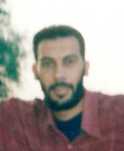

 The whole area surrounding Vrapče was under the control of the JNA. Allegedly, Mr. Ramiz Kožljak was also captured and allegedly arbitrarily executed by members of the JNA. However, his mortal remains have not been located, exhumed, identified and returned to his family and his fate and whereabouts remain unknown since then.
The whole area surrounding Vrapče was under the control of the JNA. Allegedly, Mr. Ramiz Kožljak was also captured and allegedly arbitrarily executed by members of the JNA. However, his mortal remains have not been located, exhumed, identified and returned to his family and his fate and whereabouts remain unknown since then. Mr. Ned
Mr. Ned Mr. Edin Mahmuljin and Mr. Ned
Mr. Edin Mahmuljin and Mr. Ned Mr. Salih
Mr. Salih 
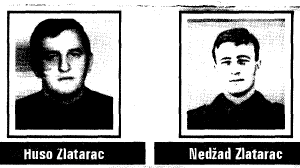
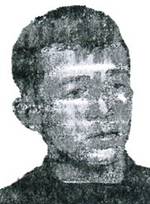
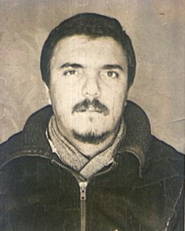
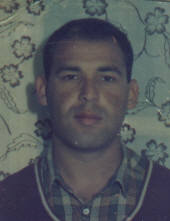 At the beginning of March 2009, the Advoca
At the beginning of March 2009, the Advoca